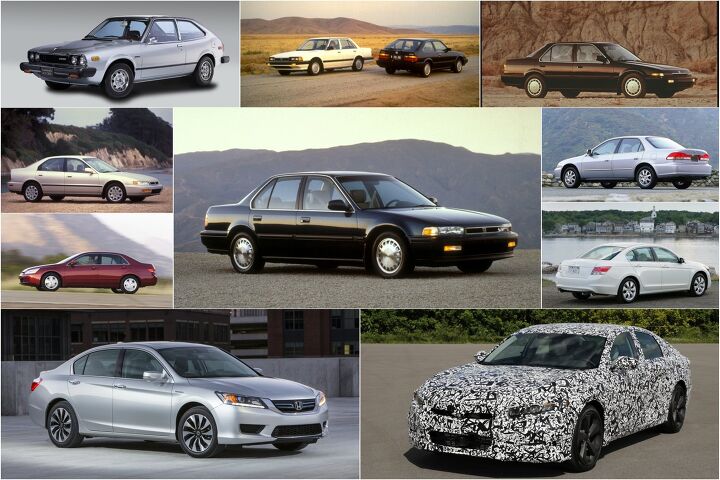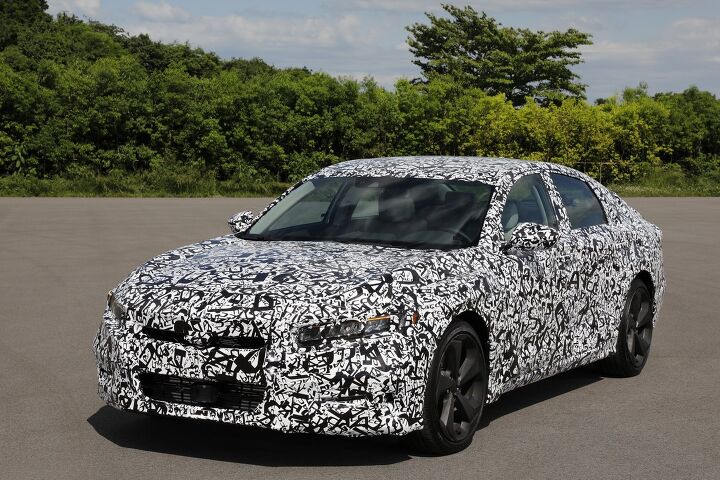#2018HondaAccord
QOTD: Which Honda Accord Is The Best Honda Accord?
Against its normal methodology, Honda is already leaking details regarding the all-new 2018 Accord, the tenth-generation of Honda’s venerable midsize car.
With continued manual transmission availability, a hi-po turbocharged 2.0-liter four-cylinder in place of a V6 upgrade that was part of the lineup for more than two decades, and another generation of coupes, the tenth-generation Honda Accord has the potential to be a terrific car.
But will it be the best Honda Accord?
American-built for 35 years, on the market for four decades, and the most popular car among TTAC’s devoted readership, the Honda Accord is a known entity. But not all Accords were created equal. Judge using whatever methodology you prefer: style, reliability, ride and handling, efficiency, interior quality. Then tell everyone which Honda Accord is the best Honda Accord.
2018 Honda Accord Kills the V6, Adds Type R Engine
The 10th generation of Honda’s venerable Accord will debut for 2018 without a V6 engine option.
A few months later to the all-new midsize party than the next-generation 2018 Toyota Camry, the new Accord will not follow the Camry’s entrenched path of providing customers with a base four-cylinder and a V6 upgrade.
Instead, Honda will make do with the 1.5-liter turbocharged four already under the hood of the 10th-generation Civic and the fifth-generation Honda CR-V. As an upgrade, Honda will offer the 2.0-liter turbocharged unit from the 2018 Honda Civic Type R. In both cases, Honda has not yet revealed the power output. Honda will continue with an Accord Hybrid, as well.
But the V6 is a goner.














Recent Comments